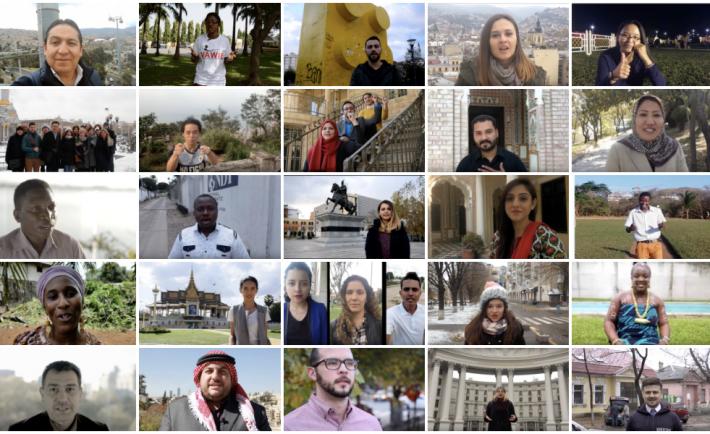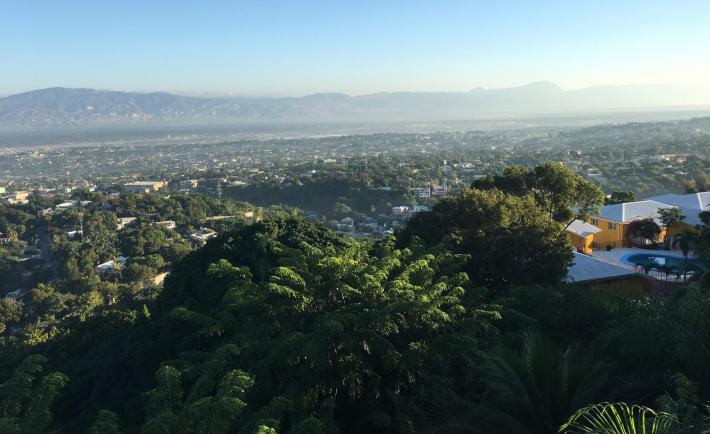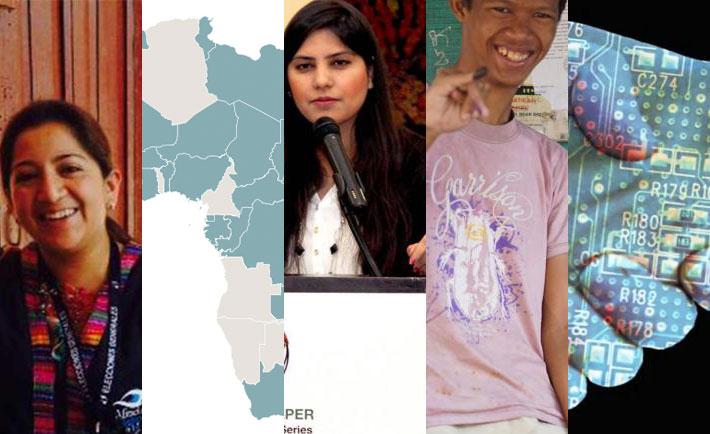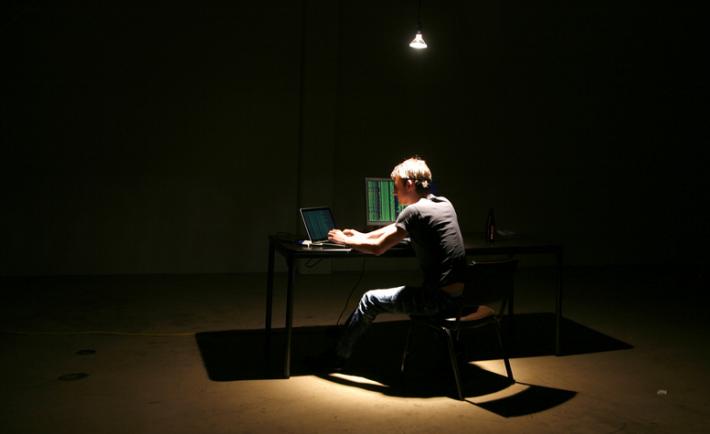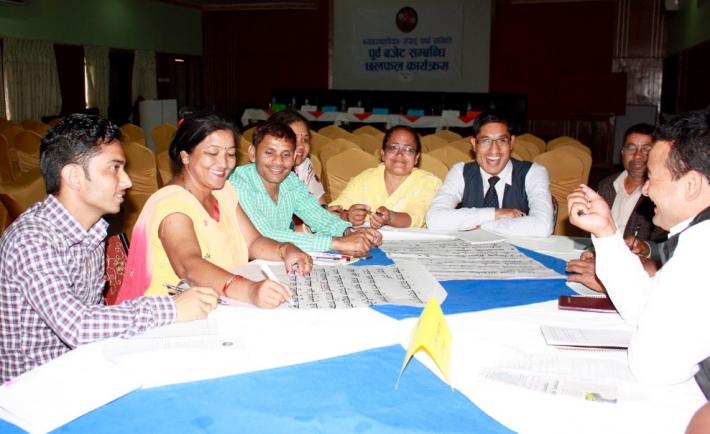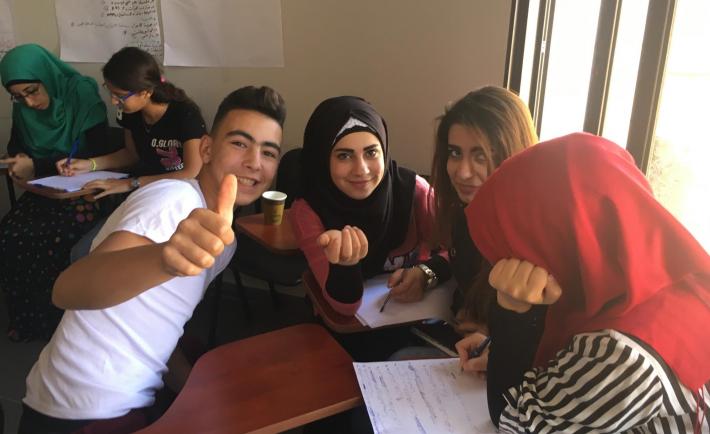For our bipartisan dinner, we developed a video compilation, which asked our partners one single, powerful question: “What does democracy mean to you?” The video responses we collected included both a one word answer and a 15 second explanation on the meaning of democracy. The result was amazing.
What Does Democracy Mean to You?
Slovakia: Democracy from Below, Not from on High
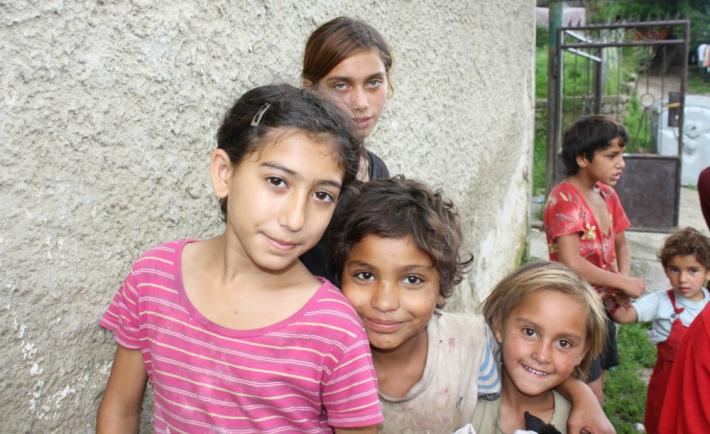
Recent anti-Roma speech throughout Europe, including in Slovakia, negatively impacts Roma children like these, photographed by Nadezhda Mouzykina in a segregated Slovak settlement.
Editor's Note: Stanislav Daniel, NDI Roma Political Participation Program Alumnus and Coordinator of Romani Early Years Network, contributed to this piece.
Slovakia’ ruling SMER party convened its annual congress in December. Although a social democratic party now in power for a number of years, the congress had the unfortunate political trappings of a populist, right-wing gathering. Instead of pronouncing on poverty and inequality and other issues important to all citizens, the party chose instead to scapegoat Slovakia’s most vulnerable constituency—the Roma—as public support for a far-right political alternative grows.
One Step at a Time in Haiti
Haiti is a country of natural beauty and vast potential, but something is always getting in the way of its progress. As the first independent nation in Latin America, and one of the oldest democracies, Haiti has a proud tradition on which to build. However, in the wake of the world’s only successful slave revolt and its declaration of independence in 1803, nations refused to recognize Haiti’s independence for decades, fearful of encouraging revolt among their own slave populations.
Best DemWorks Posts of 2016
In the past year, the DemWorks blog has become an established platform for sharing ideas on democratic development around the world. Since the DemWorks blog launched in February 2015, we have published over 159 posts and reached 108,000 users in 198 countries around the world. Here’s the list of the most-read blog posts and series from 2016.
The distributed denial of democracy
Social media and the Internet have had a drastic effect on the surprise results of yesterday’s election in the United States, driving the spread of information—and misinformation—at times bringing voters together and, perhaps more often, pushing them apart. As the spotlight shifts off of the U.S. in the aftermath of November 8, it’s important to recognize that this is not a uniquely American trend. More than half of Internet users now report using social media as a primary source of news, according to a study across 26 countries, and more than one quarter call it their main news source. In developing countries where reliable news sources are more limited, those numbers may be even higher. As reliance on social media and the Internet for news and information rises exponentially, political discourse is also rapidly moving online. A free and open Internet, where citizens can engage in fair dialogue and access accurate information, is thus critical to modern democracy and human rights.
Why Cyber-Attacks Are Anything But a Taste of Our Own Medicine
Headlines are warning us about Russian “mischief” in the U.S. elections. The U.S. Department of Homeland Security and the Director of National Intelligence have said they are confident that the Russian government is behind hacks into US email accounts and that cyber-probes of some state election systems may also be traced to Russia. A group of prominent national security and defense experts has predicted that Russian hackers will use the stolen emails to build credibility, then leak fake documents in order to manipulate voters’ opinions and, possibly, choices at the ballot box. These cyber-espionage and disinformation campaigns sound like the stuff of spy novels, except they’re real. What’s going on?
Brexit, Colombian Peace and Democracy: What’s in a Vote?
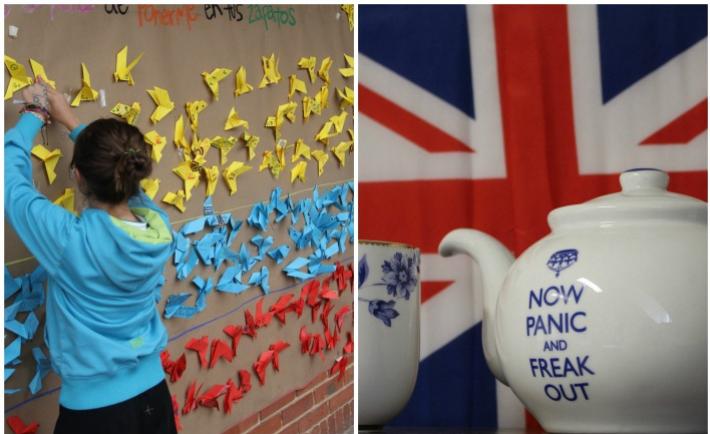
Photos originally uploaded on Flickr by Gimnasio La Montaña ("#SoyCapaz") and frankieleon ("Brexit tea")
The outcomes of the June 23 Brexit vote and the October 2 referendum on the peace deal in Colombia raised questions about voting and political participation: How could something so unanticipated happen? Would people lose faith in democracy? Could we be similarly blindsided in the United States in November? Should we even vote at all?
Promoting Democratic Governance of the Security Sector

Members of the Defense and Security Commission of Burkina Faso's National Assembly meet members of the armed forces during an informational visit to a military base in Kaya.
Violence and crime pose serious threats to citizen security. A lack of response to these threats from authorities erodes public trust in government institutions and weakens prospects for stable democracy. Maintaining the peace and ensuring the security of citizens is necessary for a democracy to develop and endure. Likewise, democratic institutions, such as parliaments, media and civil society, help guarantee a focus on citizen interest and public good, especially related to civilian oversight of the security sector. Threats to citizen security are particularly notable in West Africa’s Sahel region and Central America’s Northern Triangle, areas where NDI works to bridge the gap between citizens’ security needs and the state’s ability to meet them.
Nepal Parliament Finance Committee Enhances Voice and Input of Citizens through Pre-Budget Discussions
For the first time in Nepal’s history, pre-budget discussions took place outside of the nation’s capital city of Kathmandu. Since 2014, Nepal's Legislature Parliament Finance Committee has worked with NDI to increase citizen participation, especially in the area of citizen input in the budget process through public consultations. NDI offered its support to the Finance Committee by organizing Committee-led pre-budget discussions throughout 2015 and 2016 to reach out to citizens in the hill, mountain and Tarai regions. The discussions fostered dialogue between Nepali citizens and the parliament, thus opening the decision-making processes to more people. Consultations equipped the Finance Committee with the information and confidence it needed to make improving the overall budget process a priority prior to the finalization of Nepal's new constitution.
Lebanese Students Tackle Road Repair
In Lebanon, which is surrounded by countries in crisis, real power is held at the local level. The national government is trusted to protect borders and provide security, but it is the local municipality that largely provides basic services. Yet understanding how municipalities work is a challenge in Lebanon. Budgets are not made public and municipal websites are nonexistent, even in Beirut. Political parties hold power and corruption can be systemic. Youth in Lebanon do not have much opportunity in school to learn about democracy, the role of municipalities, or how they can be involved in governance. Determining how to have an impact can be difficult when the political system is so opaque. To help address this problem, NDI has been working for several years to empower youth and women to play a greater role in politics. The NDI team in Lebanon is working with local partners, such as NABAD, to provide basic training on how to impact political decisions at the municipal level. Hundreds of youth have already been trained and some have even run and been elected to office.

